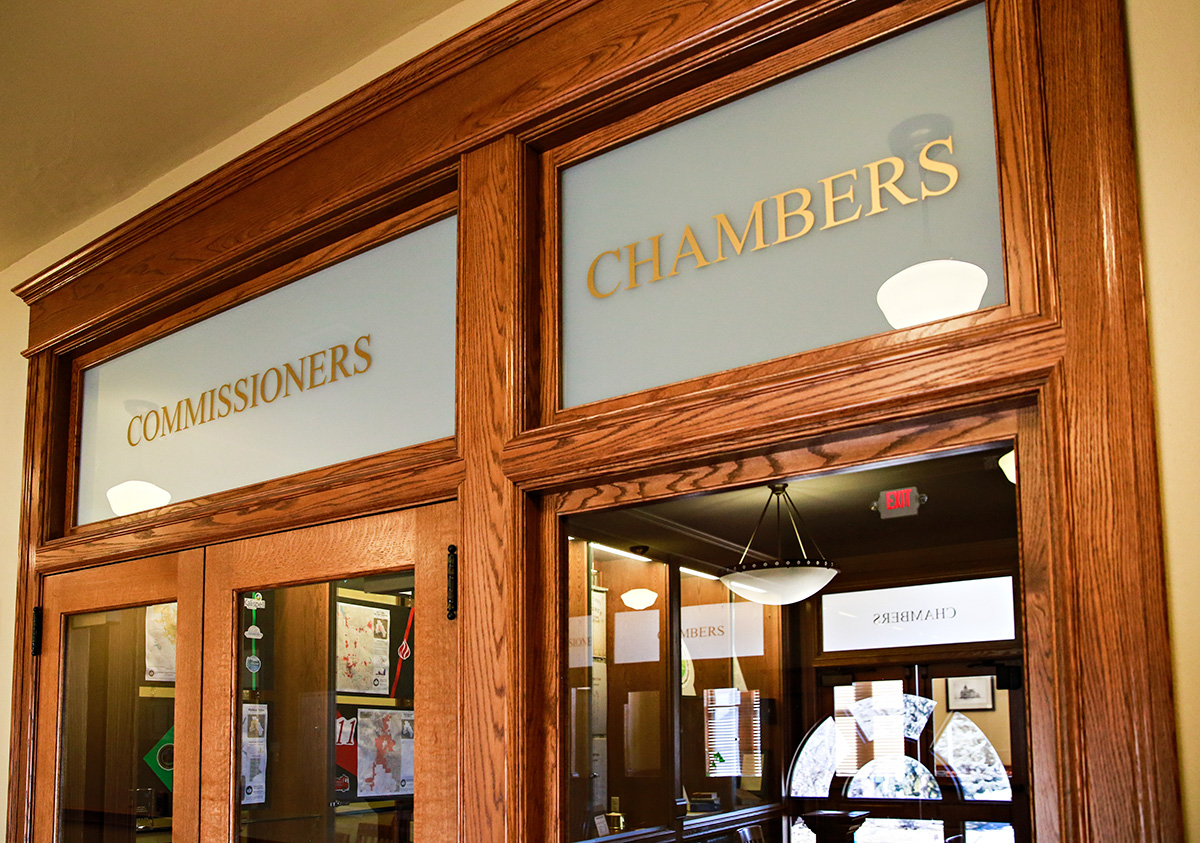Flathead County is party to two lawsuits seeking court interpretations of the county’s subdivision regulations.
The suits were mentioned at the county commission’s March 11 meeting, when Planning Director Mark Mussman told the commissioners of the ongoing legal action.
One suit is in regards to Baker 80, a proposed 16-lot, 80-acre subdivision that was approved by the county commission in February. The future development was the source of several contentious meetings as residents of the neighboring Whitefish Hills Village Subdivision argued against Baker 80 being allowed to utilize privately maintained subdivision roads. The county’s approval granted access through two such roads over opposition, interpreting them as public easements.
The attorney for GBSB Holdings, owner of the Baker 80 property, filed suit prior to the February approval, requesting Flathead County District Court to definitively declare two roads, Prairie View Drive and Whitefish Hills Drive, as public easements or restore an abandoned right of way along Brady Way, which previously provided access to the area.
“We knew it would end up in court one way or the other,” Mussman told the commission.
The Whitefish Village Homeowners Association has filed a counterclaim against GBSB Holdings, as well as a cross claim against the county. In its first cause of action filing against the county, the homeowners association argues the county does not have the authority to mandate that subdivision roads serve as primary access to new developments.
Another lawsuit concerns a development by Snow Bear Penthouses along Gelande Street in Whitefish, an unzoned area of the county. The owners of the seven-unit apartment building constructed last year filed for unit declaration of ownership to turn the development into condominiums.
The suit alleges that Flathead County erroneously exempted the Gelande Condominiums from the subdivision review process, which ensures developments adhere to regulations including setbacks, traffic, parking and fire mitigation. Mussman wrote the letter declaring the condominiums exempt, citing the lack of zoning on the property and that “condominiums appear to have been expressly contemplated in the area.”
“I had a lot of conversations before I wrote that letter with county attorneys because I have made mistakes in the past unfortunately, before I was turned onto some pertinent Supreme Court decisions regarding condominiums in unzoned areas,” Mussman said. “The ultimate question will have to be answered by somebody more than just us.”
“Just like the Whitefish Village Hills [sic], it’s a decision that really just needs to be made by a district or Supreme Court unfortunately,” Mussman continued. “But that’s why we have insurance.”
